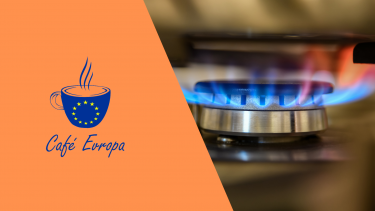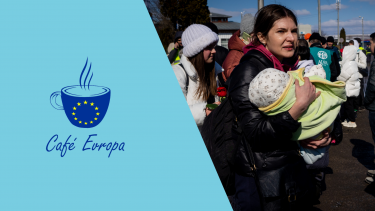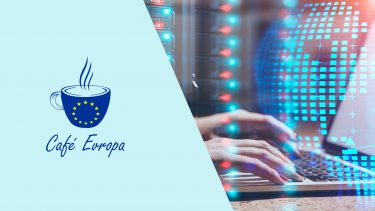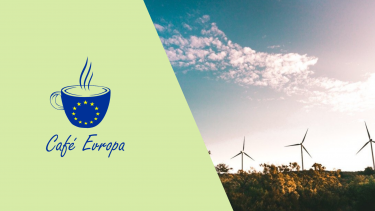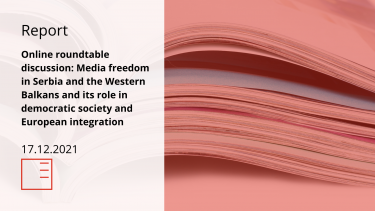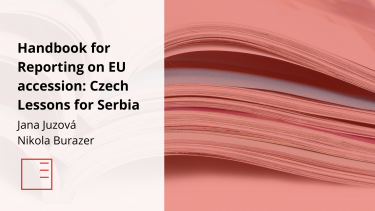Dekarbonizace českého automobilového průmyslu
Po úspěšné realizaci loňského projektu zaměřeného na dekarbonizaci českého automobilového průmyslu spustil klimatický tým Institutu pro evropskou politiku EUROPEUM jeho druhý ročník. Tentokrát je cílem projektu využít již získané znalosti, kontakty a zdroje k vytvoření příznivého prostředí pro diskusi mezi zástupci průmyslu a veřejného sektoru a rozšířit porozumění dekarbonizaci prostřednictvím empirického výzkumu. V neposlední řadě si projekt klade za cíl zvýšit společenské povědomí o výzvách a příležitostech plynoucích z transformace automobilového průmyslu prostřednictvím akcí a mediálních briefingů. Letošní projekt se bude navíc soustředit i na české předsednictví v Radě EU v druhé polovině roku.
Show more

INVITATION: Café Evropa online: The future of European energy - how to ensure stable and clean energy sources without Russia?
We would like to invite you to the Café Evropa debate on 21 March at 17:30 on the topic "The future of European energy - how to ensure stable and clean energy sources without Russia?". The Russian invasion of Ukraine has, among other things, further fuelled the question of energy security in the Czech Republic and the EU and the future of energy in our country. The current security situation points to the need to diversify energy sources as soon as possible, i.e. to secure energy supplies from different regions and countries in order to avoid excessive dependence on Russia. There are also views in the public debate that coal extraction could be temporarily increased, which would enable some countries to cover any shortfalls in resources. Is a complete or even partial halt of Russian gas supplies to the Czech Republic and the European Union a realistic option? What impact would this have on our energy security? How much further increase in energy prices can we expect in this case? How should EU countries react and help households and industry cope with the expected increase? Could a possible temporary increase in coal extraction mean a return to fossil fuels and the end of the EU's climate ambitions? Or could the current problematic situation further accelerate the energy transition?
Show moreINVITATION: Café Evropa online: Ukrainian women with children fleeing war - how can we help?
We invite you to a debate within the Café Evropa series, this time on the topic "Ukrainian women with children fleeing war - how can we help?". The debate will take place on 28 March at 17:30. You will be able to follow the debate online on our Facebook page.
Show moreINVITATION: Café Evropa online: EU Digital Package - how will it affect online services in Europe?
We would like to invite you to a debate "Café Evropa online: The EU Digital Package - How will it affect online services in Europe?". The debate will take place online on 31 March at 17:30. The debate will be in Czech and you can watch it on our Facebook page.
Show morePolicy Paper: EU’s Transparency and Targeting of Political Advertising: Good Intentions but Clarifications and Amendments still Needed
A Policy Paper on transparency and targeting of political advertising in the EU was produced during a study visit to the Brussels office of Think Visegrad. The author of the paper, Karolína Klingová, focuses on the development of information technologies, including social media platforms with the possibility of micro-targeted campaigns, which have rapidly changed the concept of political communication and electoral campaigning.
Show more PDFINVITATION: Café Evropa online: Facts and myths about the Green Deal - are its goals an opportunity or a threat?
We would like to invite you to the next debate within the Café Evropa series, this time on the topic "Café Evropa: Facts and myths about the Green Deal - are its goals an opportunity or a threat?". The debate will take place on 15 February at 17:30. Do Czech citizens have sufficient awareness of the Green Deal and the "Fit for 55" package and how should public institutions and the media communicate these topics to the public in an understandable way? Are climate change mitigation issues at all important to the Czech public? What misinformation is circulating about the EU and climate change on Czech misinformation websites and social networks? Where is the misinformation coming from in the Czech online environment? How to identify and combat them?
Show moreREPORT: Online roundtable discussion: Media freedom in Serbia and the Western Balkans and its role in democratic society and European integration
An online roundtable discussion took place on 17 December, and you can read a report on its proceedings. The discussion focused on media freedom in Serbia and Western Balkans.
Show moreHandbook for Reporting on EU accession: Czech Lessons for Serbia
Our researcher Jana Juzová, in collaboration with Nikola Burazer from Centar Savremene Politike, has written a handbook for reporting on EU accession. The handbook is intended for those reporting on Serbia's EU accession process, either as representatives of the media or civil society.
Show more PDFINVITATION: Café Evropa online: The security situation in Eastern Europe - how much are we at risk?
We would like to invite you to the next debate within the Café Evropa series, this time on the topic "Café Evropa: The security situation in Eastern Europe - how much are we at risk?" The debate will take place on 3 February at 17:30. What are Russia's intentions in Eastern Europe? If diplomacy fails, is war with Russia a realistic scenario? Is the EU being bypassed on resolving tensions on Ukraine's borders? What exactly is Moscow seeking in relation to the Czech Republic and other Central and Eastern European states?
Show morePolicy Paper: Time to Redefine the Terms and Conditions of the Transatlantic Relationship? – 2021 Transatlantic Policy Forum in Review
On November 18-19, 2021, the fourth edition of the Transatlantic Policy Forum took place. It was hosted by EUROPEUM Institute for European Policy in partnership with the German Marshall Fund of the United States and the International Republican Institute (IRI), supported by the International Visegrad Fund, Friedrich Naumann Foundation, and the Ministry of Foreign Affairs of the Czech Republic. The aim of this Policy Paper is to provide a summary and analysis of the discussions that took place, while respecting the Chatham House rule and thus preserving the anonymity of the participants. This analysis aims to highlight and elaborate on the main findings of the participants.
Show more
Staroměstské náměstí 4/1
Prague 1 - Staré Město
110 00
tel.: +420 212 246 552
email: europeum@europeum.org
https://www.europeum.org

